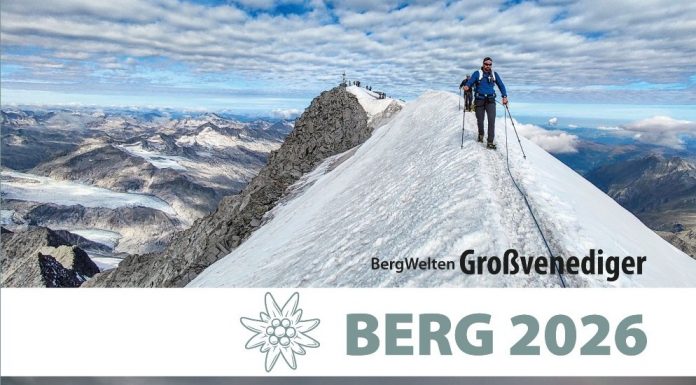Jack Geldard takes a look at the changing face and price of climbing media:Flicking through the newly released and forthcoming DVD's for this season, something struck me: THE PRICE.This year's climbing films range in price from £12.99 right up to the top bar of £19.99.This is somewhat unusual, as up until now, virtually all climbing DVD's, from the awful to the superb, have been priced around the £20 mark. So what's changed?I asked film makers Alastair Lee, Keith Bradbury and Dave Brown how they came to their cover price and for their thoughts on the 'price war' and the future of climbing DVD's:Dave Brown has obviously given his cover price some serious thought:“The reason we priced Welsh Connections at £14.99 is because I've slowly come to the view that £20 is simply too much to pay for a climbing film, even for the best ones.“ „So selling our new film cheaper is an experiment really, and also something of a gamble. The hope is that more people will buy it rather than borrow their mates'. It wasn't an easy decision because obviously there are plenty of people out there who have been happy to pay £20 up to now. Will a more realistic price produce enough additional sales for us? Time will tell.“Alastair Lee was slightly more flippant:“If everybody who watched climbing DVD's actually bought a copy they might all be £9.99…. but there you go.“Dave Brown highlighted the cost involved in producing a very niche market product:“We spend a big part of the year working on climbing films and invest a daft amount of money. So it is a bit daunting to potentially be throwing away nearly 1/3 of our income. But there it is, we can't change our minds now!“ „If £14.99 works this year then maybe we'll look at going even lower in the future, particularly if we move towards making the films available to download.“Speaking of downloaded films, a man I was most intrigued to talk to was Keith Bradbury.Keith (he made the North Face Road Trip films) produced a bouldering film about Fontainebleau a couple of years ago (L'Etranger) which he gave away as a free download, only asking for donations. I wondered how that worked out for him, and as he is now working on a new Font film (Between the Trees), what his pricing strategy was going to be for his latest release:“L'Etranger was a fascinating experiment for me, because I wanted to see how many people would voluntarily pay money for something they could get for free. Suffice to say, that if I had been relying on donations to go towards another film then there wouldn't be one, as only around 20 people out of 5000+ made a donation. When I released L'Etranger I did it so other people could (hopefully) enjoy it, and not to make money.“ Keith commented.But most people need to make money and producing climbing films and online news content is a costly business. Films and printed media are in a time of flux as things move from paper and DVD to online. Newspapers are desperately trying to come up with a way of charging for their online content, and a few models have started to find some success with the fabled 'micro payments' system.Websites such as the Wall Street Journal (WSJ) have broken the mould of what Rupert Murdoch described as a „flawed business model“ (that of free online content) by charging a subscription fee.The WSJ now has a booming subscriber base, but it's content is based on making money, not on a leisure activity such as climbing, meaning that the content has a potential financial return. You could view your subscription to the WSJ as an investment. Reading UKClimbing.com might be a hell of a lot more interesting, but it won't make you rich.Keith's experiment with L'Etranger was an interesting concept, and it highlighted the effect that free online videos are having on the way people perceive their media. Basically, it's considered free and they don't want to part with money for it.With ever increasing internet speeds, an increase in free online video content and a growing reluctance to pay for entertainment media, the DVD market is slowly mirroring the newspaper conundrum. There is a solution however.If individual climbers won't pay directly, then someone who may well part with money is a corporate sponsor. Many of the larger extreme sports have already gone down this road, with snowboarding and BMXing being prime examples. Keith Bradbury agrees, but he is avoiding this revenue stream for the moment:DVD's and Prices for 2009:Posing Productions: Grit Flick £12.99Keith Bradbury: Between The Trees £12 (download) £14 DVDBamboo Chicken: Welsh Connections £14.99Hotaches: Monkey See Monkey Do £19.99Big Up: Progression £19.99″This year, I literally can't afford to give away my new film 'Between The Trees'. If I was in a position to give it away then I would, but this would take some large corporate sponsors and that's not a path I'm ready to move down, YET. I don't think the big companies are ready to take that step either, and in this way I feel like they're quite some distance behind other extreme sports.“Would a large corporate sponsorship shadow over all our climbing media remove some of the 'authenticity' or would it just allow climbers, writers, photographers and film makers to get out on the rock and create more artistic and inspiring work? Is Keith avoiding a sponsor because he in some way feels it may taint his film?The North Face Road Trip was, in the climbing market, a ground breaking marketing stratagem that successfully pointed thousands of eyeballs at two North Face athletes (between 10,000 and 15,000 views through UKC), gave Keith some freedom to produce entertaining video clips, enabled two of the UK's top climbers to chug around Europe and tick some of the best routes, and generally had a feel good vibe about it. Did the North Face association have a negative affect? I didn't think so, but I can't tell, as I am so entrenched in the commercial world of climbing through my job.One thing that did strike me is that the rock climbing guidebook market is different to that of climbing DVD's as no online alternative currently exists that competes with a printed book. So the guidebook is largely unaffected by the digital revolution. But that won't last forever.Alan James, owner of both Rockfax and UKClimbing.com commented:“We are unlikely to see much of a price war in climbing guidebooks since there is still relatively little competition, certainly not on an area by area basis. For many they are also a 'need-to-have' product rather than a 'want-to-have', although some sexy modern full colour publications are now bought in anticipation of future use rather than for immediate use.“A few years ago many guidebooks tipped over the £20 barrier, and more recently the weakness of the pound has made books published outside the UK even more expensive. „For the amount of work in a guidebook, a price of between £20 to £30 is probably still on the low side, however it is what the market is prepared to pay. When you look at it as half the price of a tank of petrol, or a fraction of the price of travel and accommodation on an overseas trip, it doesn't seem too bad.“On the subject of selling books or DVDs Alan commented that „I am much happier in the book market than the DVD market“, but that might be a position that doesn't hold true for much longer.Regardless of what the consumer is willing to pay, it is only a matter of time until the digital revolution hits guidebooks and hits them hard. Commercial guidebook producers could learn a lot from studying the trends of current online magazines and newspapers and, increasingly, video downloads and live streaming clips.With hand-held internet technology now in a very usable format (iPhone anyone?), it is only affordability that is holding back a huge increase in users.Keith Bradbury summed up the digital revolution nicely:“I am only one guy, but I'm able to film, edit, produce, distribute, and sell a film all on my own, and all over the world. That is very different from even 15 years ago, and this shift is what made it possible for people like myself to exist in the first place! I have the internet to thank for this, and I owe it a huge debt!“He may owe the internet a huge debt, but is the internet ready to pay him back? Diesen Artikel inkl. Bilder auf UKClimbing.com anschauen
- Home
- News
- Videos
- Fotos
- Klettergebiete
- Unternehmen & Produkte
- Themen
- Themen beginnend mit 0-9
- Themen beginnend mit A
- Themen beginnend mit B
- Themen beginnend mit C
- Themen beginnend mit D
- Themen beginnend mit E
- Themen beginnend mit F
- Themen beginnend mit G
- Themen beginnend mit H
- Themen beginnend mit I
- Themen beginnend mit J
- Themen beginnend mit K
- Themen beginnend mit L
- Themen beginnend mit M
- Themen beginnend mit N
- Themen beginnend mit O
- Themen beginnend mit P
- Themen beginnend mit Q
- Themen beginnend mit R
- Themen beginnend mit S
- Themen beginnend mit T
- Themen beginnend mit U
- Themen beginnend mit V
- Themen beginnend mit W
- Themen beginnend mit X
- Themen beginnend mit Y
- Themen beginnend mit Z
- Routendatenbank
Climbing.de ist eine der ältesten deutschsprachigen Bergsportseiten im Internet.
Seit 1998 präsentiert Inhaber Martin Joisten, dessen Texte und Bilder in zahlreichen nationalen und internationalen Publikationen zu finden sind, aktuelle Informationen aus der Welt des Bergsports.
Seit 1998 präsentiert Inhaber Martin Joisten, dessen Texte und Bilder in zahlreichen nationalen und internationalen Publikationen zu finden sind, aktuelle Informationen aus der Welt des Bergsports.
Kontaktieren Sie uns: info@climbing.de
© Copyright 1998 - 2022 Climbing.de by Martin Joisten



![[VIDEO] Irmgard Braun: Record Breaking Rock Climber Who Gets Stronger Every Year Irmgard Braun: Record Breaking Rock Climber Who Gets Stronger Every Year (c) Hannah Morris Bouldering](https://www.climbing.de/wp-content/uploads/2025/11/youtube_MpAJEENfEjg-218x150.jpg)

![[VIDEO] The Challenge – Steve McClure The Challenge - Steve McClure (c) Petzl Sport](https://www.climbing.de/wp-content/uploads/2025/11/youtube_mfK9ynVsDvI-218x150.jpg)
![[VIDEO] Silence 9c/5.15d – The journey begins for Will Bosi Silence 9c/5.15d - The journey begins for Will Bosi (c) William Bosi](https://www.climbing.de/wp-content/uploads/2025/11/youtube_ujb7YRfE-7k-218x150.jpg)
![[VIDEO] Yosemite Crack Testpiece: Connor Herson on Magic Line Yosemite Crack Testpiece: Connor Herson on Magic Line (c) Fusis Films](https://www.climbing.de/wp-content/uploads/2025/10/youtube_h4GEt5iSZpA-218x150.jpg)
![[VIDEO] Hardest Trad Flash Ever | Adam Ondra | Lexicon E11 Hardest Trad Flash Ever | Adam Ondra | Lexicon E11 (c) Mammut](https://www.climbing.de/wp-content/uploads/2025/06/youtube_SAUyrDLG5xM-218x150.jpg)

![[VIDEO] Jan Hojer bouldert in Südafrika](https://www.climbing.de/wp-content/uploads/2014/12/vimeo_47555959-150x150.jpg)











